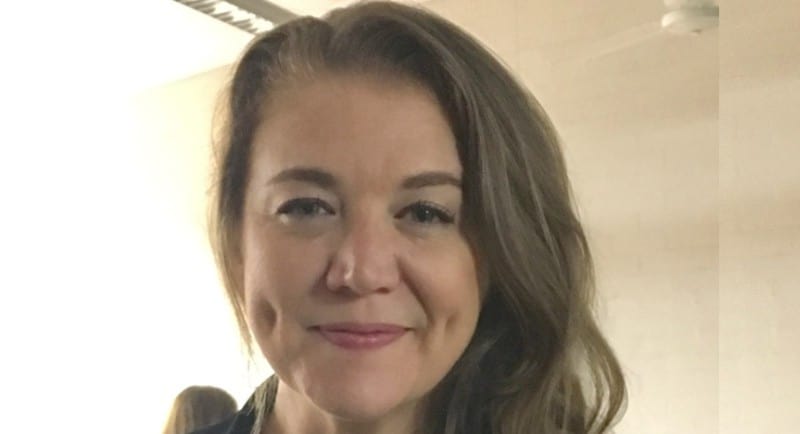Business of Media
Netflix’s tough quarter starts streaming’s biggest stress test
After the 2008 financial crisis, Congress passed a law that included mandatory “stress tests” for Wall Street banks, reports the Hollywood Reporter’s Alex Weprin.
Financial institutions that are subject to the bill are required to run a variety of tests, including “baseline and severely adverse scenarios” that incorporate factors like macroeconomic activity, income, prices and interest rates, among other factors. The purpose of the stress tests, particularly the “severely adverse” hypothetical, is to “assess the strength and resilience of financial institutions,” according to the Treasury Department.
The streaming video business is now undergoing a stress test of its own, but it isn’t a hypothetical.
Netflix’s shocking quarter, in which it lost subscribers for the fist time in more than a decade, has sent a ripple effect throughout the entertainment business. The company’s share price fell by more than 30 percent at the open, analysts downgraded the company in droves, and the company’s own forecasts became even more bearish. Shares in other companies in the space, including Disney and Roku, also fell.
Perhaps that’s why on Netflix’s earnings call Tuesday, one comment from co-CEO Reed Hastings stood out. “I know it’s disappointing for investors, and it is for sure,” Hastings said, adding that the company was now “super focused” on “getting back into our investors’ good graces.”
Florida lawmakers pass bill aimed at eliminating Disney’s special district
The Florida Senate on Wednesday passed a bill aimed at stripping Disney of special privileges of self-government it has held for over 55 years allowing it to independently oversee its theme park area, reports The Hollywood Reporter’s Winston Cho.
The Republican-led House is expected to approve the measure, which would go into effect on June 1, 2023. Gov. Ron DeSantis has signaled that he will sign the bill after calling on state lawmakers yesterday to consider it in an amended special session.
The move is considered to be in retaliation for Disney’s opposition of the so-called “Don’t Say Gay” legislation restricting classroom instruction on sexuality and gender. The potential impact to Disney and the counties where its theme park sits is unclear. The company’s special district created in 1967 known as the Reedy Creek Improvement District affords Disney the authority to act as its own county with the ability to impose taxes, adopt ordinances and provide emergency services on land that’s home to its sprawling theme park resort, among other powers.
Snap Inc. and AEC partner to drive Gen Z voting for the federal election
Snap Inc. and the Australian Electoral Commission (AEC) have partnered to use the platform to help drive more Gen Z enrolments ahead of the upcoming election day, on May 21.
This partnership comes as only 85% of Australians aged 18-24 are registered to vote.
The AEC campaign will use Snapchat’s in-app tools to leverage its seven million Australian users, with the hopes of increasing engagement in conversations around the election, driving young voter registration, education on voter services and sharing key information around polling day.
Kathryn Carter, Snap Inc. APAC general manager, said: “We reach millions of young Australians every day on Snapchat, many of whom are politically engaged but voting for the first time.”
Agencies
Involved Media partners with Chartered Accountants Australia and New Zealand
nvolved Media has announced it has partnered with Chartered Accountants Australia and New Zealand (CA ANZ), effective immediately.
With more than 131,000 members in Australia and New Zealand, CA ANZ supports financial professionals to make a difference to the businesses, organisations and communities in which they work and live.

Chelsea Wymer, Chief Marketing Officer, Chartered Accountants Australia and New Zealand
Chelsea Wymer, CA ANZ chief marketing officer, said: “We’re excited about the opportunity to work with Involved Media along with Calibre + Candor in New Zealand. As a true Trans-Tasman business, it’s imperative that CA ANZ has the strength in our media strategy, planning and buying across both countries.”
Sarah Keith, Involved Media group managing director, said: “We are very pleased to announce our appointment to the media strategy, planning and buying account for CA ANZ.”
Omnicom Group reports organic growth up 11.9% in Q1 report
Omnicom Group has reported a rise in revenue from organic growth, up 11.9% in its first-quarter report of 2022.
It also noted that revenue for the global media, marketing and corporate communications holding company decreased 0.5% to USD $3,410.3 billion (AUD $4,609.5 billion) from USD $3,426.9 billion (AUD $4,632 billion) in the first quarter of 2021.
According to the report, the components of the change in revenue included a decrease in revenue from the negative impact of foreign currency translation of 2.5%, a decrease in acquisition revenue, net of disposition revenue, of 9.9% in the Advertising & Media discipline in the United States, and an increase in revenue from organic growth of 11.9%.
The organic growth in the first quarter of 2022 across the company’s regional markets is 10.6% for the United States, 9.6% for Other North America, 10.3% for the United Kingdom, 13.8% for the Euro Markets & Other Europe, 11.1% for Asia Pacific, 9.3% for Latin America and 63.8% for the Middle East & Africa.
Organic growth increased across all of our fundamental disciplines: 9.1% for Advertising & Media, 20.3% for Precision Marketing, 13.8% for Commerce & Brand Consulting, 68.0% for Experiential, 6.3% for Execution & Support, 14.0% for Public Relations and 7.7% for Healthcare.
Omnicom net income decreased to USD $114.0 million (AUD $154.5 million), or 39.6%, compared to USD $173.8 million (AUD $235.01 million) in the first quarter of 2021.
News Brands
New York Times names Marc Lacey and Carolyn Ryan as managing editors
Joseph F. Kahn, newly appointed as the next executive editor of The New York Times, announced his leadership team on Wednesday in a memo that urged his colleagues “to produce the most ambitious, consequential and creative work of our careers.”, reports the New York Times’ Michael M. Grynbaum.
Two veteran Times journalists, Marc Lacey and Carolyn Ryan, are to serve as managing editors, the newsroom’s No. 2 role, starting on June 14.
“Both will share with me responsibility for overseeing the breadth of our coverage and news operation,” Kahn wrote in the memo, as well as “advancing major priorities like independence and trust, digital excellence and cultural transformation.”
Lacey, 56, is an assistant managing editor who previously oversaw The Times’s national coverage; before that, he was a Times correspondent in Mexico City; Nairobi, Kenya; Phoenix; and Washington.
Ryan, 57, is a deputy managing editor who most recently led recruiting for The Times, overseeing the hiring of more than 400 journalists, and she helped lead its diversity, equity and inclusion efforts. Before that, she was the paper’s political editor, Washington bureau chief and metropolitan editor.
Ryan will be the first openly gay journalist to serve as managing editor of The Times. Lacey is the third Black journalist to serve in the role, after Gerald Boyd and Dean Baquet, the current executive editor.
Television
Networks quizzed: “Who is your competition?”
They recently came together for the Australia Unites appeal, but who do commercial networks view as their main competition?
It’s a question posed to execs at the recent Screen Forever conference by In Conversation host Brian Walsh, reports TV Tonight.
Beverley McGarvey, Executive Vice President and Chief Content Officer of Paramount Australia and New Zealand.
Everybody, but also ourselves. The competition is everywhere….. you really have to earn peoples’ money, you have to earn their time…. we’re saying to people come and watch Survivor, come and watch Halo, PAW Patrol. So first of all, we have to be really careful about how we manage our audiences within our own ecosystem. Moving beyond that, of course, the other Free to Airs, the pay TV business, the subscription business, the big internationals, are all our competitors, because what they are competing for is competing for people’s time & money. And then of course, there’s the short form content, which is still competition because people have a finite amount of hours in their day to watch content. So in order for them to choose you, you have to make it a very compelling proposition. At different points of people’s day, and points of people’s lives, they make different choices. And that’s okay. I think we all have to be incredibly analytical and understand what audiences are served at different times on different platforms to be competitive. It’s just so much more complicated than it used to be -but that’s an opportunity as well.
Brook Hall, Director of Content Scheduling Seven Network
The global streamers. When we’re talking about the big players in this market… we’ve got tighter restrictions, more regulations. Some of these players are trillion dollar companies. We’re small change in the market here, competing with the lions and what they do. The big strength is we know the market better. They’re largely not in Sport and local Reality is still very limited. I think that’s probably why you’re seeing a push from all of us… it’s not that we’re vacating areas. We’re going to areas that these global behemoths are not touching and probably doesn’t make financial sense for them to touch.
Adrian Swift, Head of Content Production and Development
The old days of punch ups in the car park at the North Ryde hotel are gone. The Milperra massacre might have been television executives, who knows! Those days are gone now. I think our enemies are Facebook, Google, all the people who are taking all our advertising…. I think there will be a much more concerted version of how people see what we offer, which is both Free to Air and On Demand television. Look, I hope it’s a kinder, gentler world. But whenever those words leave my lips, I think ‘Oh no there’s going to be another dust-up in the car park.’
“We don’t want to tell just a story about a genius cricketer”
When Seven announced a Shane Warne miniseries for 2017, biography dramas were hotly pursued by networks, reports TV Tonight.
Dramas on Paul Hogan and Olivia Newton-John drew mixed reactions and Seven cooled over scripts on the Warne project -which never made it to screen.
Following his tragic death last month, Nine hurriedly announced a new Warne drama project which has led to some questions if the two projects are related?
“No. Not that I’m aware of,” Nine’s Head of Drama Andy Ryan tells TV Tonight.
While the Seven project was under Screentime’s watch, Ryan declines to confirm its producers.
